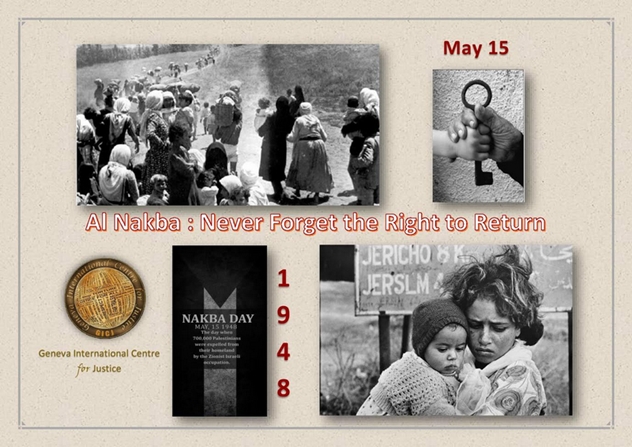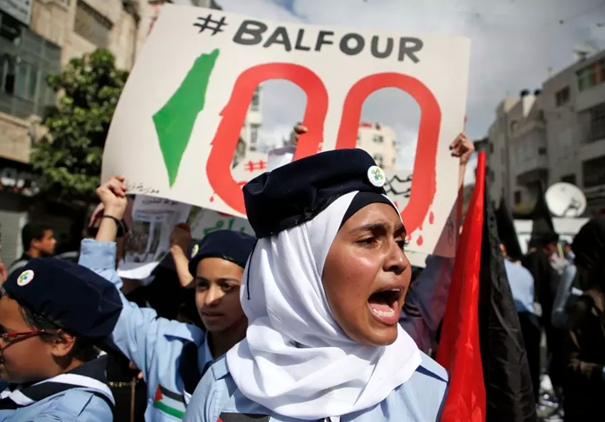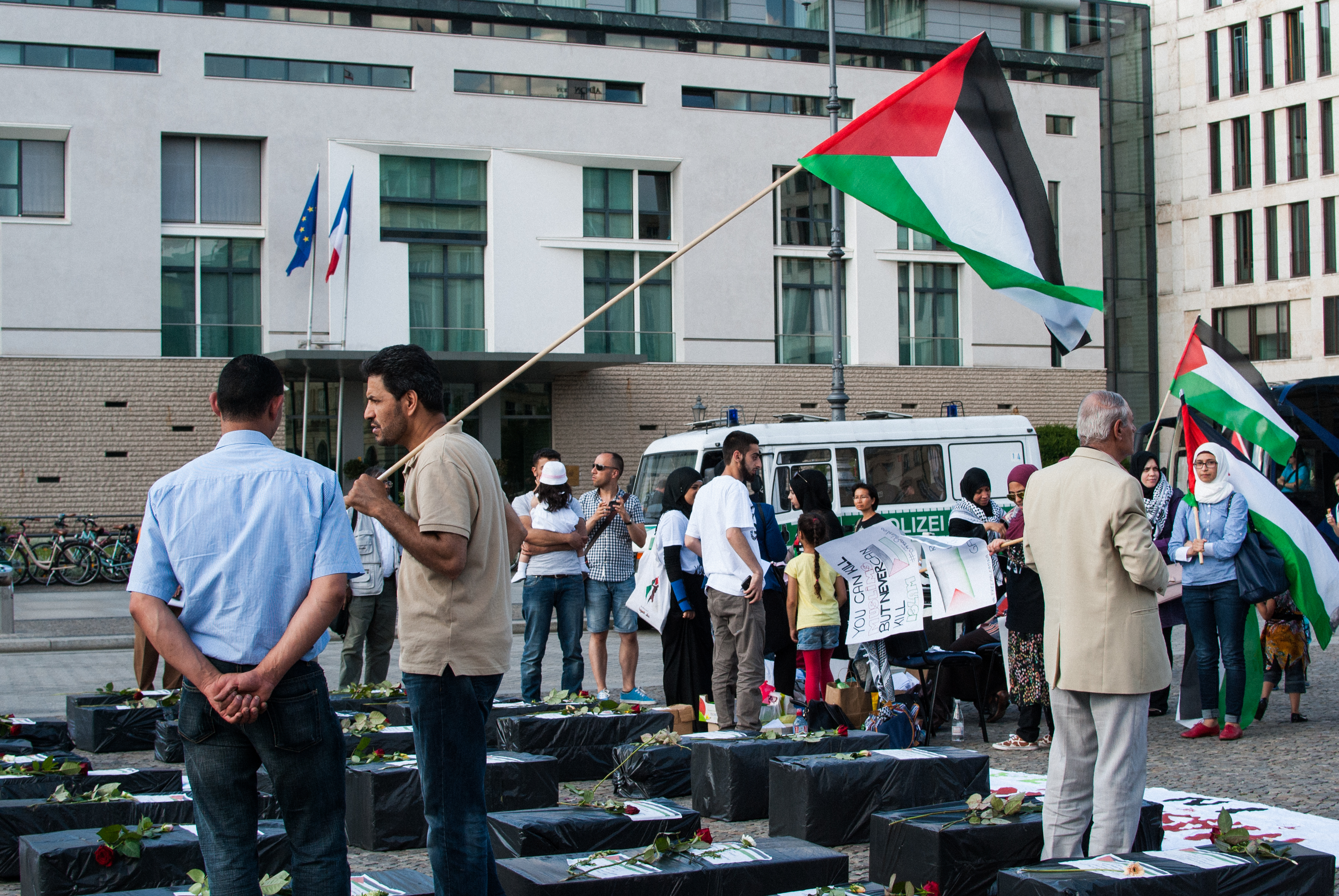By Farah C. / GICJ
"Jewish villages were built in the place of Arab villages. You do not even know the names of these Arab villages, and I do not blame you because geography books no longer exist, not only do the books not exist, the Arab villages are not there either...There is not one single place built in this country that did not have a former Arab Population."[1]
Nakba in Arabic means catastrophe, in reference to the horrors lived by Palestinians in 1948, the year Israel declared its independence. In a couple of months, more than 750 000 Palestinians were forced to flee and leave everything behind. This number represented three-quarters of the Palestinian population in 1948.
Hundreds of villages were emptied of its inhabitants and demolished to prevent the return of the refugees. Massacres such as the one that took place in Deir Yassine’s village contributed to instil panic and fear among Palestinians and forced them to leave their homes.
In 1967, an additional 200 000 Palestinians were uprooted from their lands because of the war. These former Palestinians’ properties were then given to Jewish immigrants.
This question of displaced Palestinians and refugees is an unresolved question, at the heart of Israel’s list of violations of international law. At the very least, Palestinians were subjected to “forcible transfer of population”, which is a crime against humanity [2]. Regarding the civilians fleeing war, they have the right to return to their homes as a norm of customary international law. (i.e. “a general practice accepted as law and existing independent of treaty law”)[3].
However, Israel's government continuously denied this right to Palestinians, who are prevented from coming back.
For the first time in the history of the UN, the Nakba's anniversary will be commemorated pursuant to the mandate by the General Assembly (A/RES/77/23 of 30 November 2022).
Geneva International Centre for Justice (GICJ) reiterates that peace won’t prevail without justice. The Nakba was a significant step for Israel’s construction for they concretely put into practice their ideology behind the creation of a new Zionist-Jewish State which is; inhabiting a populated state through uprooting the indigenous population. All that, knowing the new State would need international allies and legitimacy. The events of the last 75 years are only a confirmation of the Nakba's impact, as we see with the country's fragmentation through the Separation Wall, checkpoints, the increase of properties' demolitions and settlements.
GICJ along with every civil society organisation and stakeholders will continue to fight for accountability.
Please find below some of GICJ's contributions to further understand the Nakba and its consequences:
|
|
Balfour’s Legacy in Palestine: A Century of Unjust Reign |
HRC52: report on a deadly 2021 and 2022 for Palestinians |
Palestine, Nakba, 75th anniversary, Israel, commemoration, refugees, displaced persons, accountability, Geneva International Centre for Justice
"We must expel arabs and take their places...": Quote by David Ben-Gurion, Israel's first Prime Minister (1948-1953). From Nur Masalha, Expulsion of the Palestinians, p. 66. Found on: https://imeu.org/article/what-leading-israelis-have-said-about-the-nakba, 15/05/2023
[1] Quote by Moshe Dayan Israel Defense Forces and Minister of Defense during the 1967 war. This quote was said during his speech to Technion University students on March 19, 1969. A transcript of the speech appeared in Ha’aretz on April 4, 1969. Found on: https://imeu.org/article/what-leading-israelis-have-said-about-the-nakba, 15/05/2023.
[2] "Crimes against humanity": https://www.un.org/en/genocideprevention/crimes-against-humanity.shtml
[3] "Right of return": https://ihl-databases.icrc.org/en/customary-ihl/v1/rule132#Fn_73C5F00_00009












